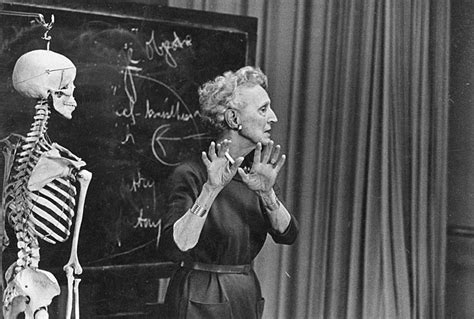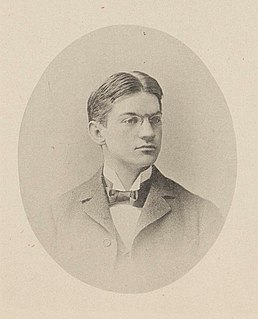A Quote by Viktor E. Frankl
Life requires of man spiritual elasticity, so that he may temper his efforts to the chances that are offered.
Related Quotes
The man who is bigger than his job keeps cool. He does not lose his head, he refuses to become rattled, to fly off in a temper. The man who would control others must be able to control himself. There is something admirable, something inspiring, something soul-stirring about a man who displays coolness and courage under extremely trying circumstances. A good temper is not only a business asset. It is the secret of health. The longer you live, the more you will learn that a disordered temper breeds a disordered body.
The peril of this century is spiritual apathy. As the body requires sunlight, good food, proper exercise and rest, so the spirit of man requires the sunlight of the Holy Spirit; proper exercise of the spiritual functions; the avoiding of evils that affect spiritual health, that are more ravaging in their effects than typhoid fever, pneumonia, or other diseases that attack the body.
I suspect it was...the old story of the implacable necessity of a man having honour within his own natural spirit. A man cannot live and temper his mettle without such honour. There is deep in him a sense of the heroic quest; and our modern way of life, with its emphasis on security, its distrust of the unknown and its elevation of abstract collective values has repressed the heroic impulse to a degree that may produce the most dangerous consequences.
Nothing can alter the character of God. In the course of a human life, tastes and outlook and temper may change radically: a kind, equable man may turn bitter and crotchety: a man of good-will may grow cynical and callous. But nothing of this sort happens to the Creator. He never becomes less truthful, or merciful, or just, or good, than He used to be.
A spiritual man should be a normal man, a sound man. God Himself is normal; He is not insane. In order to reach God, a spiritual person has to be divinely practical in his day-to-day activities. Spirituality does not negate the outer life. But we have to know that the outer life does not mean the animal life. The outer life should be the manifestation of the divine life within us.
Every child has a right to know how to achieve control of his body in order that he may use it to the limit of his ability for the expression of his own reactions to life. Even if he can never carry his efforts far enough to realize dance in its highest forms, he may experience the sheer joy of the rhythmic sense of free, controlled, and expressive movement, and through this know an addition to life to which every human being is entitled.





































